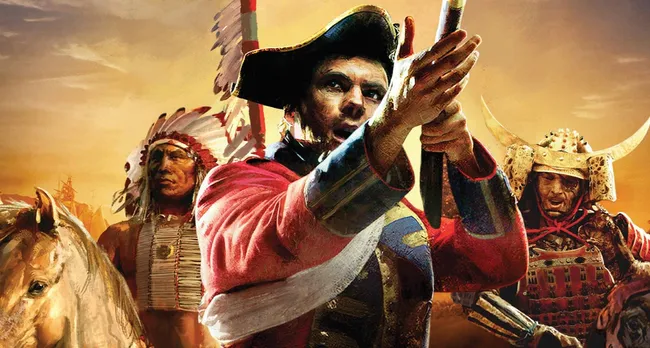Damned Registrations
Furry Weeaboo Nazi Nihilist
- Joined
- Feb 24, 2007
- Messages
- 16,022
Yeah, if meta strategies were truly the most effective, they'd never change, barring changes to game mechanics. The fact entire metas get thrown out because a single player pokes a hole in them and everyone starts copying him, or playing to counter him instead of what was previously dominant, reveals that chasing the meta is basically a copout when it comes to strategy- you've given up on thinking about the problem and just rely on superior execution and luck to see you through.
Something I've realized from playing a bunch of chess lately is that what constitutes a 'good' strategy in it is rather nebulous. Often while checking back for mistakes, what it reveals as a huge advantage at some point was unrealistic- if you play perfectly for over a dozen moves you'll certainly win, but if you play even the second best move even once during those dozen moves, you'll lose to even the 5th best move the opponent can play. In chess, these situations can be very interesting; things like an early queen sacrifice that eventually trades back all the lost material, or leaving your king terribly exposed but applying constant pressure so it can't be exploited. You get a lot of very tense situations one after another.
This doesn't work in other games.
This generally takes the form of a 'glass cannon' strategy in other games, that snowballs unless you miss a shot and get counter attacked. But it's boring because there's no complex situation to unravel, it's just a matter of twitchy execution or really obvious choices in a turn based game. And you see this play out in RTS all the time, and it's encouraged- static defenses are intentionally made to be utter crap so the best strategy is to build nothing but army and economy and be very aggressive with it. I think that's a major flaw in design- you can see in the evolution of fighting games that they used to play out that way (and some still do, with easy 'Touch of Death' combos with no counters) but many now often have comeback mechanics, ways to interrupt combos, multiple characters in a single round, and generally a lot more interaction beyond 'well he hit me, guess I'll go make a sandwich while I die.' I think RTS needs stuff like that- a one time use spell that kills everything on your half of the map. A hero, army, technology or just pile of resources that arrive when you start losing. Rebellions or ambushes that get triggered when you're winning. Ways to avoid the snowball effect and diminish how optimal a glass cannon strategy is, which at the same time would make different factions more unique and interesting. I think chasing the esports market hasn't helped- developers seem eager to make matches last in the 5-30 minute range reliably and have single exciting moments where everything goes to shit and the whole game is decided, rather than a measured back and forth of hard to quantify advantages.
Nobody wants to play a fighting game where every character dies to a single punch, so why do developers think that's how RTS should work?
Something I've realized from playing a bunch of chess lately is that what constitutes a 'good' strategy in it is rather nebulous. Often while checking back for mistakes, what it reveals as a huge advantage at some point was unrealistic- if you play perfectly for over a dozen moves you'll certainly win, but if you play even the second best move even once during those dozen moves, you'll lose to even the 5th best move the opponent can play. In chess, these situations can be very interesting; things like an early queen sacrifice that eventually trades back all the lost material, or leaving your king terribly exposed but applying constant pressure so it can't be exploited. You get a lot of very tense situations one after another.
This doesn't work in other games.
This generally takes the form of a 'glass cannon' strategy in other games, that snowballs unless you miss a shot and get counter attacked. But it's boring because there's no complex situation to unravel, it's just a matter of twitchy execution or really obvious choices in a turn based game. And you see this play out in RTS all the time, and it's encouraged- static defenses are intentionally made to be utter crap so the best strategy is to build nothing but army and economy and be very aggressive with it. I think that's a major flaw in design- you can see in the evolution of fighting games that they used to play out that way (and some still do, with easy 'Touch of Death' combos with no counters) but many now often have comeback mechanics, ways to interrupt combos, multiple characters in a single round, and generally a lot more interaction beyond 'well he hit me, guess I'll go make a sandwich while I die.' I think RTS needs stuff like that- a one time use spell that kills everything on your half of the map. A hero, army, technology or just pile of resources that arrive when you start losing. Rebellions or ambushes that get triggered when you're winning. Ways to avoid the snowball effect and diminish how optimal a glass cannon strategy is, which at the same time would make different factions more unique and interesting. I think chasing the esports market hasn't helped- developers seem eager to make matches last in the 5-30 minute range reliably and have single exciting moments where everything goes to shit and the whole game is decided, rather than a measured back and forth of hard to quantify advantages.
Nobody wants to play a fighting game where every character dies to a single punch, so why do developers think that's how RTS should work?
















